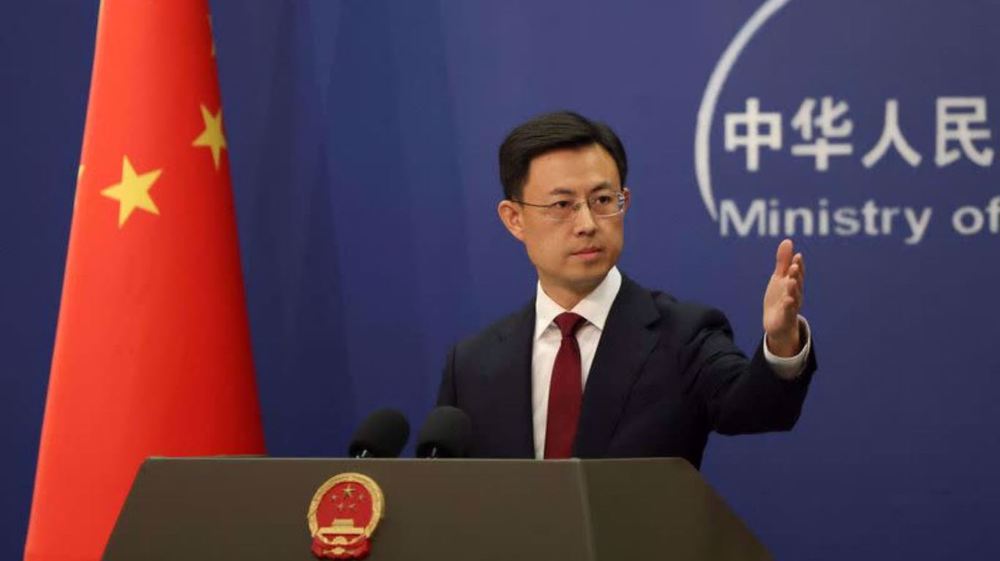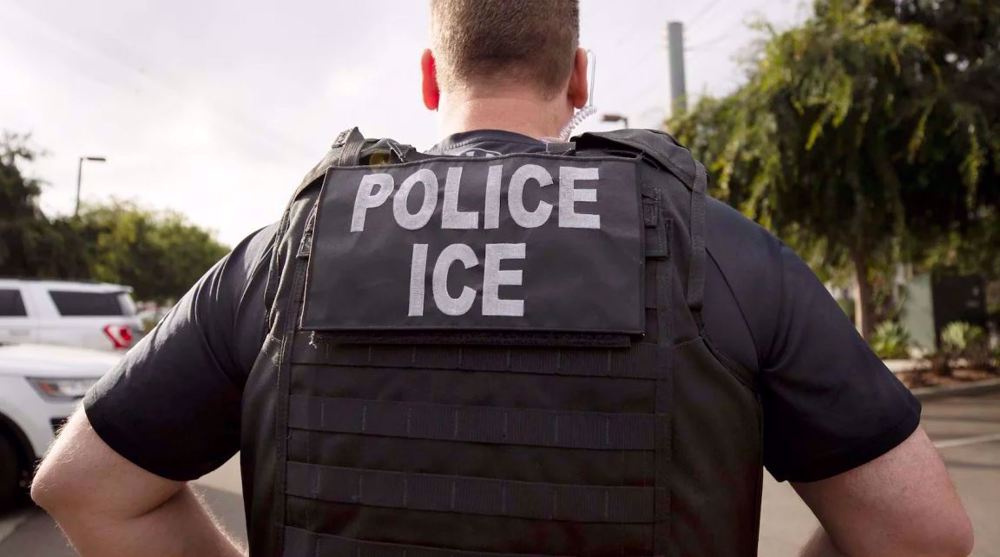Venezuela slams Trump’s military threat as ‘act of craziness’
Venezuela’s defense minister has denounced US President Donald Trump’s “crazy” threat of military action amid escalating bilateral tensions over what Caracas views as Washington’s meddling in the Latin American country’s political crisis.
“This is an act of craziness, an act of supreme extremism,” General Vladimir Padrino said in an interview with the state television on Friday.
The defense minister was responding to remarks earlier in the day by Trump, who said he was considering “many options for Venezuela, including a possible military option if necessary” in the face of the ongoing political and economic crisis gripping the South American state.
Read more:
“As a soldier, together with the FANB (Venezuela’s armed forces) and together with the people, I am certain that we will all be in the first ranks defending the interests and sovereignty of our beloved Venezuela,” said the defense chief.
“There is an extremist elite governing the United States and honestly I don’t know what’s happening, what is going to happen in the world,” Padrino added.
Meanwhile, Venezuela’s Communications Minister Ernesto Villegas described Trump’s threat as “an unprecedented threat to national sovereignty.”
He said the Foreign Ministry is set to “release a communiqué addressing the imperial threat to Venezuela.”
Trump’s threat came after his Venezuelan counterpart, Nicolas Maduro, said he seeks to meet US President Donald Trump for a “personal conversation.”
The White House also said Maduro requested on Friday a phone call with the US president, whose administration has slapped sanctions on Maduro himself and some of his allies.
It said Trump would agree to hold talks with Venezuela’s leader “as soon as democracy is restored in that country.”

The oil-rich but impoverished country has been convulsed by months-long deadly protests against the government in Carcass.
The political tensions there have seen a rise after Venezuelan people said ‘Yes’ in an election last week to the formation of a national assembly tasked with dissolving the opposition-led congress and rewrite the constitution. The vote was boycotted by the opposition.
Maduro says the Constituent Assembly could serve to restore calm to the country and prevent a foreign-backed “coup d’etat” by the opposition. Opponents however, see the body as a tool in the president’s hands to grab more powers.
Siding with the opposition, Washington blames Maduro for the violence and has urged regional and international governments to take strong action against his government. Maduro, however, says the US and its allies in the region are inciting the violence to bring down his government.
The United States imposed sanctions against 13 current and former Venezuelan officials after doing the same to the country’s vice president in February. The US Treasury Department later froze Maduro’s US assets and called him a “dictator” for pushing ahead with the election.
Venezuela, Peru expel envoys
In a separate development on Friday, Peru expelled Venezuela's ambassador to Lima over claims that Maduro had violated his country’s constitution by the formation of the Constituent Assembly.
The ambassador, Diego Molero, has five days to leave Peru, according to the country’s Foreign Affairs Ministry.
In a tit-for-tat move, Venezuela also ordered the head of Peru’s embassy in Caracas to leave.
“In light of the measure adopted by the Peruvian government, we find ourselves in the lamentable obligation to expel the charge d’affaires of Peru in Venezuela,” a Venezuelan Foreign Ministry statement read.
The government in Caracas also called Peruvian President Pedro Pablo Kuczynski an “enemy” of Venezuela, accusing him of “continually interfering” in the country’s internal affairs.
“The Venezuelan government will continue to deepen relations with the heroic Peruvian people despite the actions of the elite that governs Peru,” the ministry statement noted.

China condemns US decision to punish Venezuelan oil importers

532,000 migrants face deportation after Trump revokes protections

'Brazen theft': Venezuela raps US seizure of plane after high-level talks
VIDEO | Press TV's news headlines
VIDEO | BRICS+ Association of Cities, Municipalities held in Tehran
VIDEO | Protests erupt in front of US congress to slam Trump economic policies
VIDEO | Pakistan's religious leaders announce Jihad against Israel, US over Gaza genocide
Israel releases Palestinian boy who was arrested at age 13
Israeli CEO arrested for pedophilia and sexual assault
Israel's hawkish minister, husband accused of sex abuse by daughter
Iran breaks Germany's monopoly on cancer-treating Rhenium-188







 This makes it easy to access the Press TV website
This makes it easy to access the Press TV website